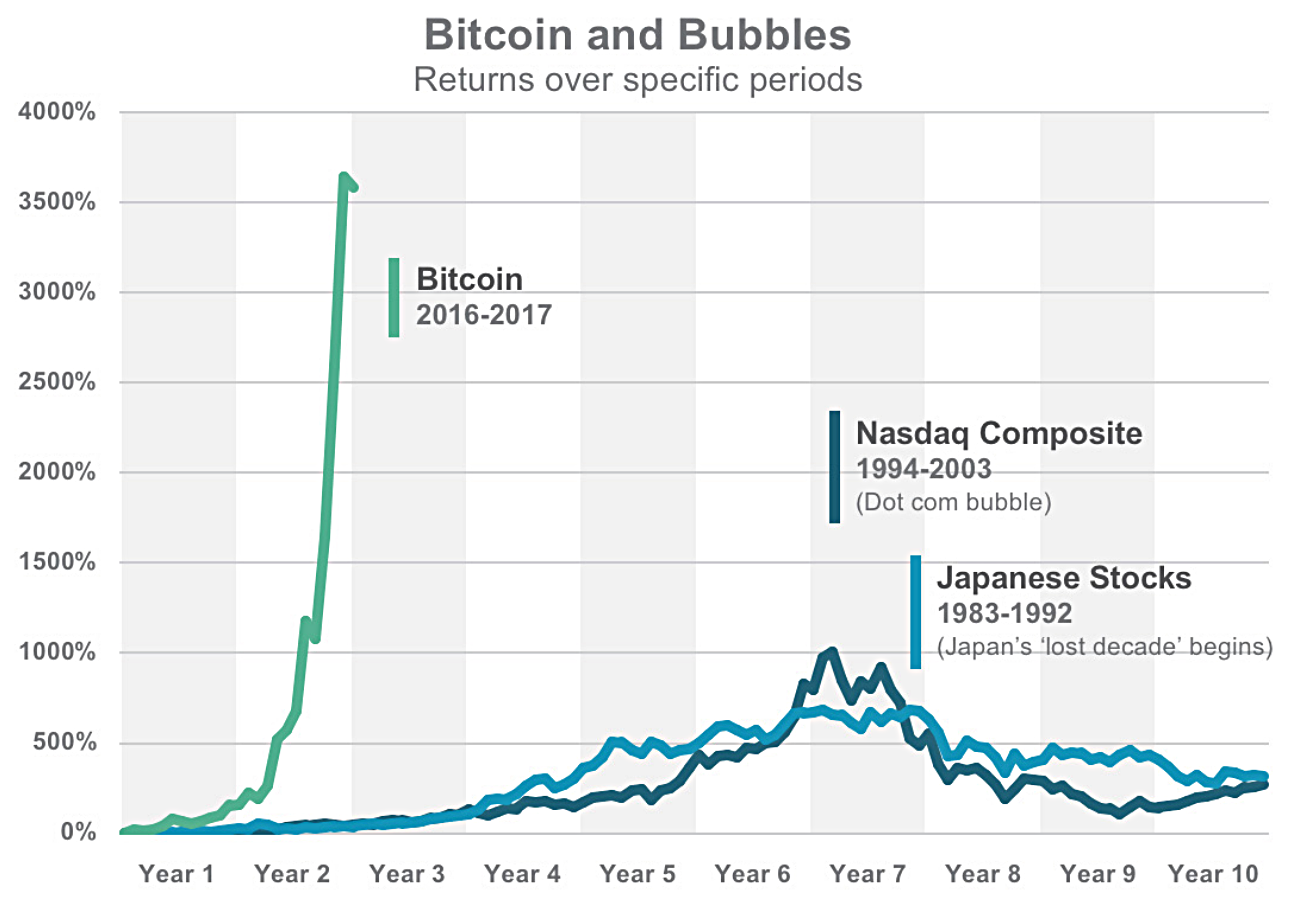FROM OUR INVESTMENT COMMITTEE | Investing vs. Speculating
By Matt Carvalho, VP, Loring Ward
While many stock markets around the world rose in 2017, truly stratospheric returns came from cryptocurrencies, with some (like Bitcoin) rising by more than 1,000%. Suddenly, cryptocurrencies were everywhere and many wanted to own Bitcoin, though few really understood it.
Do cryptocurrencies have a role in your own portfolio? To answer that question, it’s important to understand the difference between long-term investing and speculating. Investors take a long-term view and look to place their money into assets that will grow in value over time, and intrinsically be worth more in the future. Speculators take on significant risks in the hopes of making quick profits. Which do you think is more likely to help you meet your long-term goals: investing or speculating?
Cryptocurrencies may be in the headlines, but as with any new technology the risks are high. Think about investing in other industries based on the belief that they were going to reap huge economic profits down the road…
Cell phones: If you had invested in Nokia 15 years ago you would have watched it dwindle while smart phones took over the world
Search engines: From Netscape to Alta Vista, more than 20 sought to catalog the evolving internet before Google came along
Social media: Would you want to have invested heavily in MySpace?
Predicting the future of technology is hard enough, but predicting who will capitalize on its evolution is even harder. Speculating on a cryptocurrency is akin to trying to pick one car company that will profit from driverless cars, or investing in a startup aiming to cure cancer. There is a chance it could work out, but do you want to bet your ability to retire on picking the right company? And even picking the right company is no guarantee that company will do better than the market over the long term.
A recent article* from Dimensional Fund Advisors reminds us that our investment decisions should always be in relation to our goals: Unlike stocks or corporate bonds, it is not clear that bitcoins offer investors positive expected returns. Unlike government bonds, they don’t provide clarity about future wealth. And, unlike holding cash in fiat currencies, they don’t provide the means to plan for a wide range of near-term known expenditures. Because bitcoin does not help achieve these investment goals, we believe that it does not warrant a place in a portfolio designed to meet one or more of such goals.
Source: Yahoo! Finance and Morningstar Direct, 2018. Japan defined as MSCI Japan PR USD. Tech Stocks defined as Nasdaq 100 PR USD. Price Returns. Indexes are unmanaged baskets of securities that are not available for direct investment by investors. Index performance does not reflect the expenses associated with the management of an actual portfolio. Past performance is not a guarantee of future results.
When we think back to significant and rapidly increasing financial bubbles, two that often come to mind are dot-com stocks on the Nasdaq in the late 1990s and Japanese stocks in the 1980s. But as the chart above illustrates, those two remarkable runups of over 500% in a few years pale in comparison to the price increase — over 3500% — seen in Bitcoin over just the last two years.
The fear of missing out on the enormous gains won’t go away anytime soon. There will always be an asset or part of the market that will look appealing. But true investors should keep in mind what they are investing in, and why they are invested in it. Changes to your financial plan should be based on changes in your own personal financial situation, not whatever new cryptocurrency the “experts” are speculating on that day.
*“To Bit or Not To Bit: What Should Investors Make of Bitcoin Mania?” December 2017, Dimensional Fund Advisors Issue Brief

